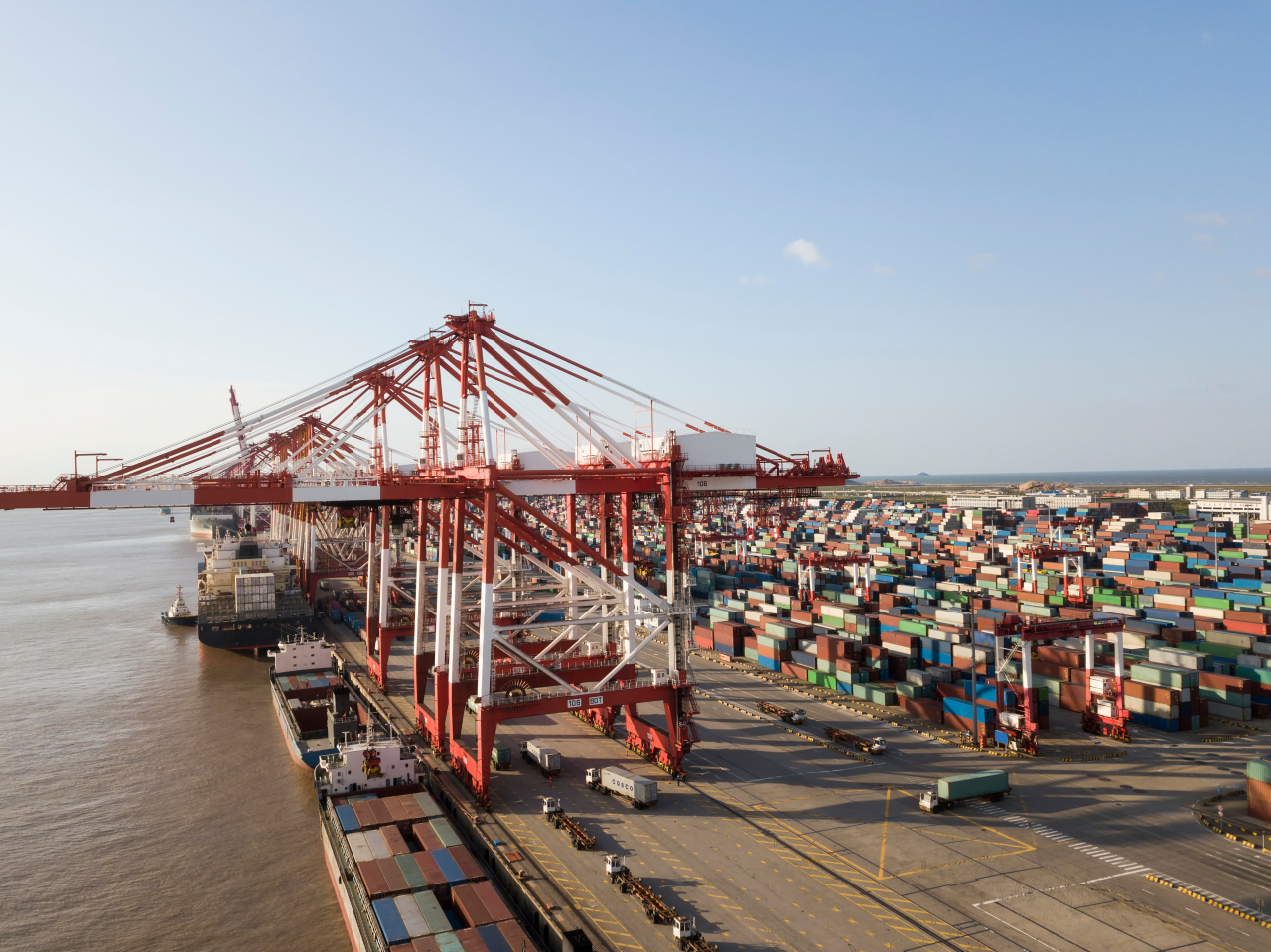
South Korea's current account returned to a deficit in April due to decreased dividend payments from overseas and a deficit in the travel-related account, central bank data showed Friday.
The country's current account deficit reached $790 million in April, swinging from a surplus of $160 million a month earlier, according to the preliminary data from the Bank of Korea.
In January, the country also suffered a record deficit of $4.21 billion amid an extended decline in outbound shipments.
April's deficit came as a surplus in the goods balance was offset by a deficit in the services account and the primary income account, which tracks wages of foreign workers and dividend payments from overseas, the data showed.
The country posted a goods account surplus of $580 million in April, ending its fifth straight shortfall, the data showed.
Outbound shipments fell 14.2 percent on-year to $49.6 billion on a customs-cleared basis in April due mainly to sagging global demand for semiconductors amid an economic slowdown.
Exports have logged an on-year fall since October last year amid aggressive monetary tightening by major economies to curb inflation and an economic slowdown. It is also the first time since 2020 that exports have declined for seven months in a row.
South Korea posted a service account shortfall of $1.21 billion in April, the 12th straight month of a deficit, the data showed. The deficit is mainly blamed on increased overseas travel bolstered by eased virus curbs.
The primary income account, which tracks wages of foreign workers and dividend payments overseas, logged a deficit of $90 million in April, a turnaround from the previous month's $3.65 billion, largely thanks to decreased dividend payments from overseas, the data showed. (Yonhap)


![[Exclusive] Korean military set to ban iPhones over 'security' concerns](http://res.heraldm.com/phpwas/restmb_idxmake.php?idx=644&simg=/content/image/2024/04/23/20240423050599_0.jpg&u=20240423183955)




![[Pressure points] Leggings in public: Fashion statement or social faux pas?](http://res.heraldm.com/phpwas/restmb_idxmake.php?idx=644&simg=/content/image/2024/04/23/20240423050669_0.jpg&u=)

![[Herald Interview] 'Amid aging population, Korea to invite more young professionals from overseas'](http://res.heraldm.com/phpwas/restmb_idxmake.php?idx=644&simg=/content/image/2024/04/24/20240424050844_0.jpg&u=20240424200058)









